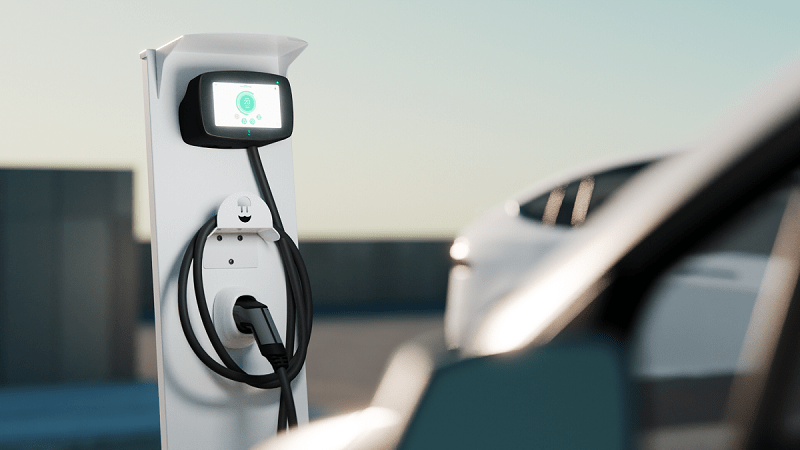
Joint EVC12 EV Charger
With the popularity of electric vehicles, electric vapor has become a hot industry. Environmental protection, government incentives, innovations in EV technology and charging techniques, market demand, and future business opportunities, to name a few, have led to more and more companies choosing to join the EV industry as manufacturers, charger distributors, or charging station operators. To operate more successfully, it becomes crucial to choose a suitable EV charger for your business. In 2024, the market will be flooded with a variety of advanced EV charging technologies, products, and charging solutions. In this blog, we will provide you with some tips to help you choose the best EV charger for your business.
What should you consider when buying EV charger for your business?
1. charging speed and power:
One of the first considerations when buying EV chargers is the charging speed and power. Different EV chargers offer different power levels and are usually categorized as Level 1, Level 2 (AC chargers), and Level 3 (DC fast chargers). If your business requires fast charging, especially for commercial premises, a Level 3 DC fast charger may be a good choice, like the Joint EVD100. As a high-power EV charger, the EVD 100 3-phase smart charger is capable of delivering up to 180kw of power, and it can be used with either a Combo 1 (CCS1) or Combo 2 (CCS2) connection. However, for residential areas or long stays such as workplaces, and communities, Level 2 chargers may be a more suitable EV charging solution.
2. EV charging connector type:
It’s also critical to know what type of charging connector you need. SAE J1772 in the U.S., Type 2 in Europe, CHAdeMO, and CCS in Asia are different standards for different regions. To better determine the connector type, you can use market research to analyze the main types of EVs in your region. Select the connector type that fits the mainstream EVs in your region to ensure you can serve a wider range of EV users.
3. Product customization services:
Some EV chargers offer customizable options such as personalized appearance, colors, sizes, and business logos. In a commercial setting, such customizability can lead to better brand presentation and user experience for your business. Therefore, you can work with an electric car charger wholesaler that offers ODM and OEM services to customize the best commercial electric vehicle charger according to your business needs.
4. Smart features:
With innovations in charging technology, EV chargers are usually equipped with various smart features such as remote monitoring, energy management, dynamic load balancing, smart charging, real-time data feedback, fault alerts, user authentication, and payment systems. According to your business needs, choose the smart features you need, which can improve the management efficiency of the charging station and provide users with a more convenient charging experience. You can consider choosing chargers that support energy management and dynamic load balancing, which help optimize energy usage and prevent energy overload while ensuring grid stability.
5. On-demand pricing and billing models:
For commercial locations, flexible on-demand pricing and an accurate billing model are critical. CTEP ensures accurate charging post billing and RFID technologies improve EVs in terms of vehicle safety and user experience. Being able to differentiate pricing based on factors such as charging time and power usage will help increase the profitability of your EV charging business.
6. Installation and maintenance costs:
Consider the installation and maintenance costs of chargers comprehensively. Some chargers may require more complex installation procedures, while others may be easier to maintain. Consider all of these factors when making your choice to ensure that you are getting the best value for money for your business.
Why are Level 2 EV chargers suitable for most businesses?
There are several reasons why the Level 2 EV charger is best suited to commercial businesses. Firstly, it has a faster charging speed which makes it suitable for commercial premises, such as restaurants, shopping centers, and hotels, to be able to provide sufficient power to their EVs for the duration of their stay. Secondly, Level 2 chargers are more popular in commercial areas and are more likely to attract EV users. In addition, Level 2 chargers have relatively low installation and maintenance costs compared to other chargers, making them an affordable option for small and medium-sized commercial locations. It also supports energy management and dynamic load balancing, which improves the efficiency of the charging equipment. Level 2 chargers are user-friendly and easy to operate, which enhances the image of the commercial premises. Finally, some Level 2 chargers offer customizable options, which can help present a branded image on the business premises. Taking all of these factors into consideration, Level 2 EV chargers are a well-rounded and effective option in a commercial setting.
Summary:
Choosing the best EV charger for your business is a decision that requires thoughtful consideration. By considering several aspects, including charging speed, connector type, customizability, smart features, energy management, billing models, installation and maintenance costs, and policies and regulations, you can better meet the needs of EV users and improve the profitability of your business. On top of that, you can partner with an EV charger provider who will provide you with the right commercial EV charging solution.
Tech World Times (TWT), a global collective focusing on the latest tech news and trends in blockchain, Fintech, Development & Testing, AI and Startups. If you are looking for the guest post then contact at techworldtimes@gmail.com

